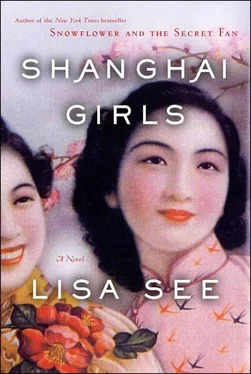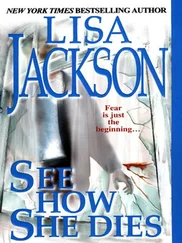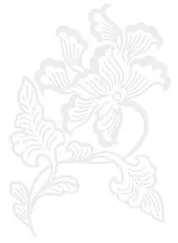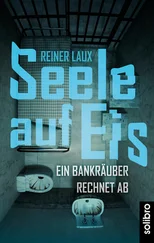“Don’t feel sorry for me,” my husband says. “My father would have died anyway. Farming is not a good life when you have to carry a two-hundred-fifty -jin load on a bamboo pole balanced on your shoulders or you have to stoop in the rice fields all day. The only riches I’ve earned have come from working with my hands and feet. I started out as so many rickshaw pullers, not knowing what to do, my bare feet slapping the road like a pair of palm fronds. I learned to hold my stomach in, expand my chest wide, raise my knees high, and stretch my head and neck forward. As a rickshaw puller, I earned an iron fan.”
I’d heard my father use the term about his best pullers. It suggested a hard, straight back and a chest as wide, spread open, and strong as a fan made from iron. I also remember what Mama said about being born in the Year of the Ox: that the Ox is capable of great sacrifices for his family’s welfare, that he’ll pull his own load and more, and that-while he may be as plain and serviceable as the beast of burden he emulates-he is forever worth his weight in gold.
“If I could make forty-five coppers from a fare, I was happy,” Sam goes on. “I would exchange those coppers for fifteen cents. I would keep turning my coppers into silver coins, and my silver coins into silver dollars. If I could pocket an extra tip, I was happier still. I thought, if I could save ten cents a day, I would have one hundred dollars in a thousand days. I was willing to eat bitterness to find gold.”
“Did you work for my father?”
“At least I didn’t have that humiliation.” He touches my jade bracelet. When I don’t flinch, he loops a forefinger through the bracelet, his flesh barely grazing mine.
“Then how did you find the old man? And why did you have to marry me?”
“The Green Gang owned the largest of the rickshaw businesses,” he answers. “I worked for it. The gang often served as matchmaker between those who wanted to become paper sons and those seeking to sell paper-son slots. In our case, they acted as a traditional matchmaker too. I wanted to change my fate. Old Man Louie had a paper-son slot to sell-”
“And he needed rickshaws and brides,” I finish for him, shaking my head at the memories all this brings back. “My father owed the Green Gang money. All he had left to sell were his rickshaws and his daughters. May and I are here. My father’s rickshaws are here, but that still doesn’t explain how you ended up here.”
“For me, the price to buy the paper was one hundred dollars for each year of my life. I was twenty-four, so the cost was twenty-four hundred dollars for boat passage, plus room and board once I got to Los Angeles. I would never be able to earn that amount at nine dollars a month. Today I work to pay off the old man-not only for myself but for you and Joy too.”
“Is this why we’re never paid?”
He nods. “He’s keeping our money until my debt is paid. This is why the uncles aren’t paid either. They’re paper sons too. Only Vern is a blood son.”
“But you’re different from the other uncles-”
“That’s right. The Louies want me as a true replacement for the son who died. This is why we live with them and why I’m the manager of the café, even though I know less than nothing about food or business. If the immigration people ever discover I’m not who I say I am, they could put me in jail and deport me. But I might have a way to stay, because the old man made me a paper partner too.”
“But I still don’t understand why you needed to marry me. What does he want from us?”
“Only one thing: a grandson. That’s why he bought you and your sister. He wants a grandson one way or another.”
My chest tightens. The doctor in Hangchow said I’d probably never be able to have children, but to say that to Sam would mean I’d have to tell him why. Instead I ask, “If he wants you as his true son, then why do you have to pay him back?”
When he takes my hands, I don’t pull away, even though I’m terrified I’m about to be caught.
“Zhen Long,” he intones earnestly. Even my parents rarely called me by my Chinese name-Pearl Dragon. Now I hear it as an endearment. “A son must pay his debts, for himself and his wife and child. Back in Shanghai, when I was considering this whole arrangement, I thought, When the old man dies I will become a Gold Mountain man with many businesses. Then I came here. There were days in the beginning when I just wanted to go home. Passage only costs a hundred and thirty dollars in steerage. I thought I could make that by hiding my tips, but then you and Joy came. What kind of a husband would I be if I left you here? What kind of a father would I be?”
From the moment May and I arrived in Los Angeles, we’ve been thinking of ways to escape. If only we -I- had known Sam felt the same way.
“I began to think you, Joy, and I could go home together, but how could I allow our baby to travel in steerage? She could die down there.” He squeezes my hands in his. He stares directly into my eyes, and I don’t look away. “I’m not like the others. I don’t want to go back to China anymore. Here, I suffer every day, but it’s a good place for Joy.”
“But China ’s our home. The Japanese will tire eventually-”
“But what is there for Joy in China? What is there for any of us? In Shanghai, I was a rickshaw puller. You were a beautiful girl.”
I hadn’t realized he’d known this about May and me. The way he says it strips me of the pride I’ve always felt for what we’d done.
“I don’t care to hate anyone, but I can hate my fate-and yours too,” he says. “We can’t change the people we are or what’s happened to us, but shouldn’t we try to change our daughter’s fate? What road awaits her in China? Here, I can pay back the old man and eventually earn our freedom. Then we will give Joy a proper life-a life of opportunities that you and I will never have. Maybe she could even go to college one day.”
He speaks to my mother’s heart, but the practical part of me that survived my father losing everything and my body being torn apart by monkey people doesn’t see how his dreams can become real.
“We’ll never be able to break away from this place and these people,” I say. “Look around. Uncle Wilburt has worked for the old man for twenty years and he still hasn’t paid his debt.”
“Maybe he’s paid his debt and is saving his treasure to return home a wealthy man. Or maybe he’s happy where he is. He has a job, a place to live, a family to have dinner with on Sunday nights. You don’t know what it’s like to live in a village with no electricity or running water. Maybe you have one room for the whole family, maybe two. You eat only rice and vegetables, unless there’s a festival or a celebration, but even that takes great sacrifice.”
“All I’m saying is that one man by himself is barely able to support himself. How are you going to help the four of us?”
“Four? You mean May.”
“She’s my sister, and I promised my mother I’d take care of her.”
He considers that for a moment. Then he says, “I’m patient. I can wait and I can work hard.” He smiles shyly and then says, “In the morning when you go to the Golden Lantern to help Yen-yen and see Joy, I work at the Temple of Kwan Yin, where I have an extra job selling incense to the lo fan to stick in the big bronze burners. I’m supposed to say, Your dreams will come true, for the blessings of this graceful deity are limitless,’ but my mouth can’t form those words in English. Still, the people seem to take pity on me and buy my incense.”
He gets up and walks to the dresser. He’s such a sadly thin man, but I don’t know how I didn’t recognize his iron fan before this. He rummages through the top drawer and then returns to the bed with a sock that bulges at the toe. He turns the sock upside down, and nickels, dimes, quarters, and a few dollar bills spill on the mattress.
Читать дальше












